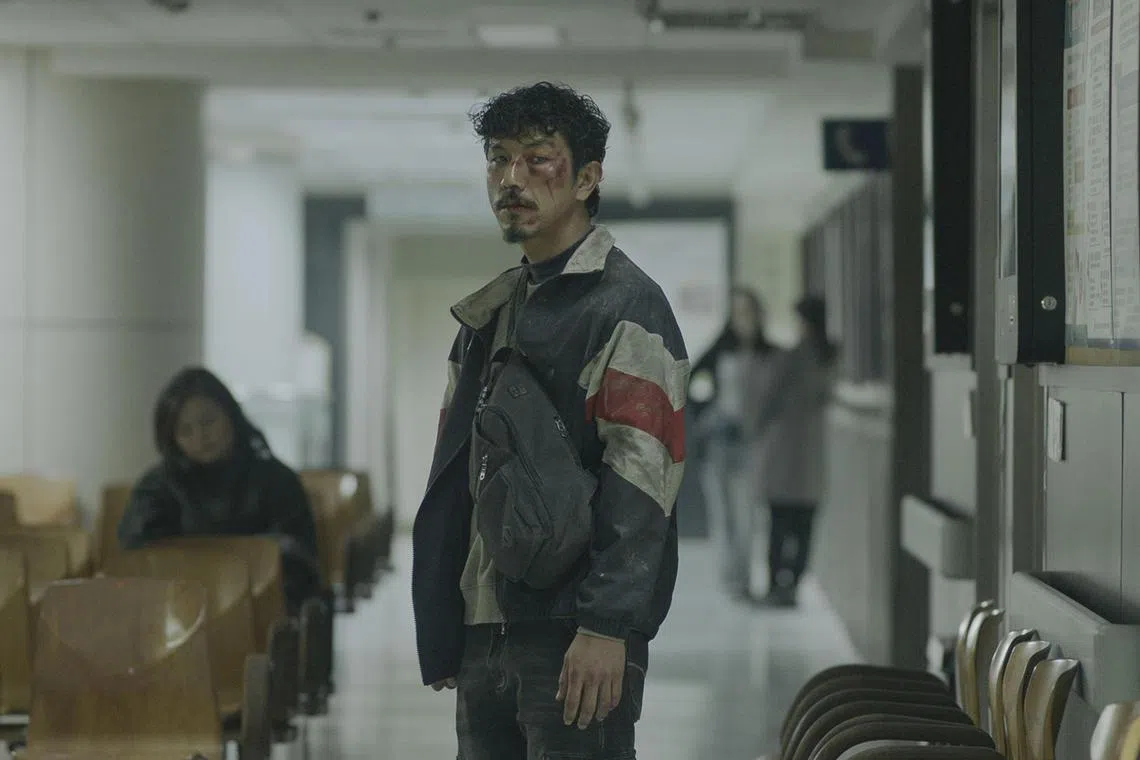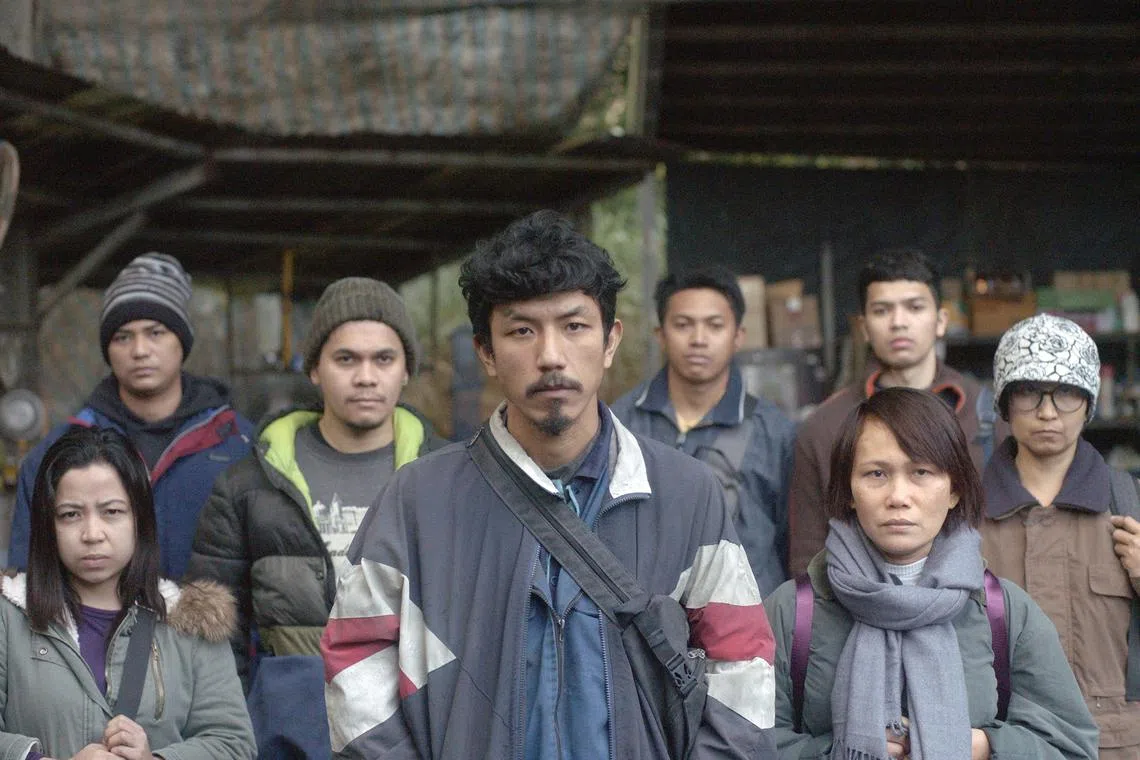Medics on Singaporean director Chiang Wei Liang’s Cannes-awarded Mongrel went into action when a real emergency hit
Sign up now: Get ST's newsletters delivered to your inbox

Mongrel’s main character Oom, played by Thai actor Wanlop Rungkumjad, becomes a caregiver to the elderly and disabled.
PHOTO: E&W FILMS
Follow topic:
SINGAPORE – Singaporean writer-director Chiang Wei Liang was shooting in rural Taiwan in 2023 when a tragedy unfolded, one with eerie echoes of the story contained in his film Mongrel.
The Singapore-Taiwan-France co-production made headlines recently for being awarded the Camera d’Or Special Mention at the Cannes Film Festival, which ran from May 14 to 25. The Camera d’Or recognises excellence in a film-maker’s first feature film, while the Special Mention is conferred on films that do not win the main prize, but deserve recognition for their outstanding quality.
Chiang, 37, was filming a scene in which emergency medical technicians (EMTs) were outside a house and unable to enter because a relative had locked the doors after leaving, trapping a sick woman and her foreign helper inside. The scene was based on a real-life incident that had happened to an uncle of Chiang’s.
Chiang had hired real paramedics to play EMTs in Mongrel.
“Our producer rushed in and said, ‘Hey, we need the EMTs right now,’” the film-maker recalls.
In a house nearby, a man had suffered a cardiac arrest. The EMTs rushed over but could not save him. The ambulance took 45 minutes to arrive, a tragic illustration of the way rural communities in Taiwan are starved of medical services, forcing them to turn to foreign caregivers – some of them undocumented – to help their sick and aged.
Taiwanese film-maker Yin You Qiao has a co-director credit on Mongrel. Chiang spoke to The Straits Times over Zoom from Lyon, France, where he is taking a break before heading to Paris to conduct screenings and panels related to his Cannes award.

Singaporean director Chiang Wei Liang and Taiwanese film-maker Yin You Qiao at a photocall after they won the Camera d’Or Special Mention for Mongrel.
PHOTO: EPA-EFE
In the mountains of Taiwan, the film’s main character Oom, played by Thai actor Wanlop Rungkumjad, becomes a caregiver to the elderly and disabled. The story tracks him as someone who performs an essential service, yet is marginalised by society.
In his director’s statement, Chiang says his previous short films had focused on the “precarious, invisible lives” of undocumented migrant workers.
“Although Mongrel is a work of fiction, it is drawn from my own experiences and the stories of others I have met from the South-east Asian community in Taiwan,” adds Chiang, who has been based in Taiwan for the last 15 years.
“Palliative care extracts a physical and emotional toll on the caregiver, and the hardship is worsened when the caregiver is an immigrant.”

Film still from Mongrel, with Oom (centre) portrayed by Thai actor Wanlop Rungkumjad.
PHOTO: E&W FILMS
Similar situations exist all over Asia, including Singapore, he tells ST. Mongrel does not have a confirmed release date in Singapore.
In Taiwan, there are cases of migrant workers who, after suffering poor conditions at their authorised workplace, leave to become undocumented workers elsewhere.
“They end up deep in the mountains, in a far-flung factory or plantation and, in some cases, suffer the terrible fate of ending up on a fishing vessel,” he says, referring to news reports of Taiwanese boat companies exploiting and abusing migrant workers while out at sea.
He is encouraged by the reception he has received in France for his first feature, where it has struck a chord with some members of the audience while causing a few to walk out of his screening.

Mongrel is writer-director Chiang Wei Liang’s first feature.
PHOTO: E&W FILMS
He says he remains unfazed by the walkouts, adding that “their feelings are valid, that is how they choose to engage with the film”.
But he remembers the moment a French woman stopped him on the streets after the Cannes screenings to express her gratitude.
“She had been a caregiver and she said that the maturity and humanity of the film had moved her.”


